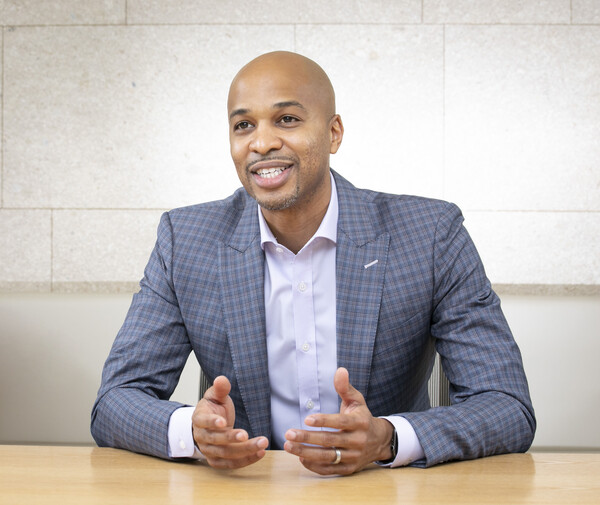Korea has a very complicated drug pricing policy and the government should allow pharmaceutical companies to access review data for reimbursement, Eli Lilly Korea’s leader said.
Eli Lilly, a multinational pharmaceutical company approaching its 150th anniversary, appointed Christopher J. Stokes to lead its Korean operations in August 2022.
Stokes joined the Korean offshoot at a critical time when expectations are high for upcoming therapies such as the diabetes drug Mounjaro, which has not yet been approved in Korea, the possible reimbursement of Verzenio, which is the only drug in the CDK4/6 inhibitor class that is aiming to expand reimbursement benefits to early-stage breast cancer patients.

Serving as general manager of Lilly Korea for the past six months, Stokes shared his thoughts about Korea's pharmaceutical drug pricing policy.
Stokes is known as a public policy expert. He started his career at Lilly began as a public policy analyst and took various roles in external affairs, government affairs, drug pricing, strategic planning, new product development, brand policy marketing, and sales management. He also served as Chief Operations Officer at Lilly headquarters.
"For the last six months, I have spent much time meeting industry leaders and experts, listening to their opinions, and understanding Korea's drug pricing policy," Stokes said in a recent interview with Korea Biomedical Review. "I learned from it that Korea's current pharmaceutical pricing policy is much more complicated than I thought."
Stokes noted that the Korean regulator seemed to make more data-driven, positive, and logical decisions, compared to some other countries.
However, meaningful decisions could be made “when everyone can access data so that the decisions can be understood even by third parties,” he said.
From this point of view, Stokes hoped that the Korean government could allow data accessibility for pharmaceutical companies at a level similar to the government.
Other challenges in the Korean pharmaceutical sector included limited budgets, rapidly aging populations, and an increase in innovative medicines, he said.
In particular, the reimbursement-related policy environment depends on the products, the unmet needs of the diseases that the products cover, and the government's ability to afford them, he went on to say.
"Therefore, we strive to understand the unique concerns of each product and derive a tailored negotiation strategy accordingly," he said. "Notably, we have to be able to present as accurate data as possible and it should clearly show the value of the product."
Stokes said he would seek ways to appropriately apply the insights he gained in the U.S. and Africa while operating the Korean branch.
Stokes also highly praised the Korean offshoot of the company stressing that Lilly Korea has an excellent reputation globally.
"It is amongst the top 25 countries of Lilly's branches worldwide, and the headquarters frequently cite Korea as a positive case," Stokes said. "So, I was very excited when I was appointed as the general manager of Lilly Korea."
Concluding the interview, Stokes also shared two goals he hopes to accomplish this year as the general manager of Lilly Korea.
The first goal is to introduce innovative new drugs that Eli Lilly launches based on continued R&D to the Korean market swiftly and continuously. To do so, the company should internalize its mindset of thinking and helping patients in every course of the business for all employees, he said.
Lilly Korea's vision is to help 1 million patients by 2026 through its treatments.
"To achieve it, we must think of patients daily sincerely rather than just putting up a slogan," he said. "If all our members in Lilly Korea truly embed this mindset and thought of patients' concerns, I believe all our products in the Korean market will sufficiently meet the needs of all patients."
His second goal is to help the members of Lilly Korea develop their careers in meaningful directions.
"Employees can perform best if a company provides a pleasant working environment," he said. "The amount of help the company offers to patients worldwide is ultimately up to the members of Lilly."
Related articles
- [Reporter's notebook] Cheering for Lilly Korea’s bid
- 'Lilly's Verzenio, a complete cure option for recurrent breast cancer patients'
- Lilly's Verzenio expands indication for high-risk early breast cancer
- Lilly rolls out RET targeted therapy Retevmo in Korea
- Eli Lilly Korea names Christopher J. Stokes as new GM
- AstraZeneca’s complementary approach to tackling infectious diseases
- Diabetes drug Mounjaro landed here. But can Koreans use it?

